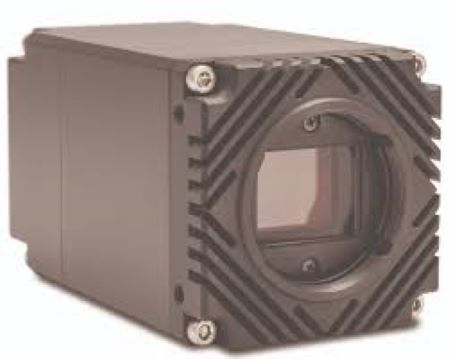Canon Inc. and Canon Marketing Japan Inc. have introduced two new 1/1.8-inch CMOS sensors—the LI7070SAC (colour) and LI7070SAM (monochrome)—designed for security, industrial, and medical applications.
These sensors feature approximately 2.12 megapixels (1,936 x 1,096) and advanced near-infrared sensitivity, improving performance in low-light environments and high-contrast settings.
The LI7070SAC offers 2.4 times greater near-infrared sensitivity than its predecessor, the LI7050, enabling surveillance in darkness and applications like industrial inspections and fluorescein angiography.
Both sensors also support HDR imaging with a range of up to 120dB through a dual-exposure technique, delivering high-quality visuals in varying brightness conditions.
ALSO READ What Is Google Gemini and How Does It Work?
Despite their compact size, the sensors boast exceptional low-light sensitivity, with the LI7070SAC capturing full-HD video at 0.08 lux and the LI7070SAM at 0.04 lux. These capabilities make them ideal for nighttime surveillance, underwater drones, and compact microscopes.
Canon’s innovation continues to address the growing demand for high-performance imaging in diverse fields, reinforcing its position as a leader in sensor technology.
Canon Inc. is a Japanese multinational corporation headquartered in Ōta, Tokyo, specializing in optical, imaging, and industrial products, such as lenses, cameras, medical equipment, scanners, printers, and semiconductor manufacturing equipment.
Canon has a primary listing on the Tokyo Stock Exchange and is a constituent of the TOPIX Core 30 and Nikkei 225 indexes. It used to have a secondary listing on the New York Stock Exchange.
The company was originally named Seikikōgaku kenkyūsho (Japanese: ’Precision Optical Laboratory’). In 1934, it produced the Kwanon, a prototype for Japan’s first-ever 35 mm camera with a focal-plane-based shutter. In 1947, the company name was changed to Canon Camera Co., Inc., shortened to Canon Inc. in 1969. The name Canon comes from Buddhist bodhisattva Kannon (Japanese: ’Guanyin‘), previously transliterated as Kuanyin, Kwannon, or Kwanon in English.


